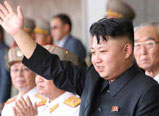
 |
| Pinocchio Syndrome (By Jiao Haiyang/China.org.cn) |
Yet for now, let us be reasonable – even in a post-Snowden era. The abovementioned American accusations are "fair" in the sense that they leave China room to refute. Surely, the Chinese refutations have not been heard by a wider global public since the American commercial media often dominates the global public opinion and redemption has to come within the West. Let us just say it is "fair" for the simple reason that China is able to give an explanation.
As the fable goes, for every excuse the wolf comes up with, the lamb is able to refute the claims and back up its arguments with evidence. However, the American trick – dubbed "21st century statecraft" – has gone far beyond what the wolf in Aesop's fable could ever imagine. Let us here reiterate the rationale used by Mike Rogers, chairman of the House Permanent Select Committee on Intelligence. In his efforts to defame Chinese telecommunication companies Huawei/ZTE, he said: "China has the means, opportunities and motives to use telecommunication companies for malicious purposes." This charge implies a future tense that China is unable to rebut. In comparison with Mr. Rogers, the wolf in Aesop's fable is still being quite reasonable.
The dispute over cyber security in the post-Snowden era between the U.S. and China has evolved onto psychological and cosmological levels. The issue of cyber security was discussed by a working group installed under the fifth China-U.S. Strategic and Economic Dialogue. To many members of the global public, it appeared China wasted its chance at a full-fledged counterattack. Germany and Brazil, for example, would like to discuss the cyber security matter with the U.S., but their efforts did not materialize. The reason that China actually was able to do so, stemmed from the fact that the cyber security working group had been approved well before Snowden blew the lid off America's mass Internet surveillance, at the initiative of John Kerry and with the original purpose to shame China. Instead of fighting back, China asked for nothing but an explanation over the Snowden case and even this request was brushed aside. The Chinese philosophy behind this grand retreat is one of "live and let live," with the kind expectation that the U.S. would take the message and back down. Nevertheless, this gesture was completely misinterpreted.
The U.S. mistook China's kindness for cowardice. The reason behind this misinterpretation occurred on a cosmological level. The U.S. adores the zero-sum game mentality, making China's reservations a stimulus for more American attacks. According to Norwegian peace researcher Johan Galtung, this American cosmological view of objects and people exists in terms of competition and tries to decide "who is best, who is worst, who wins and who loses." After a bizarre period of truce between both countries, running from early June when the first document was revealed through early July when the fifth China-U.S. Economic and Strategic Dialogue started, the U.S. went back to its old disapproving ways. During their so-called truce, China had wanted to give President Obama the benefit of the doubt and did not undertake any counterattack – despite its people learnt Chinese institutions had indeed been systematically hacked into. The U.S. entered stand-off mode, mainly to observe China's reaction to the Snowden scandal. By the fifth China-U.S. E&SD, the U.S. thought it had figured China out and decided to resume its earlier accusations. Following American logic, when China is involved with espionage activity, it is called IPR theft. Whenever America does it, it is for the sake of national security.


















 Working under 40 degrees Celsius
Working under 40 degrees Celsius


![]()
